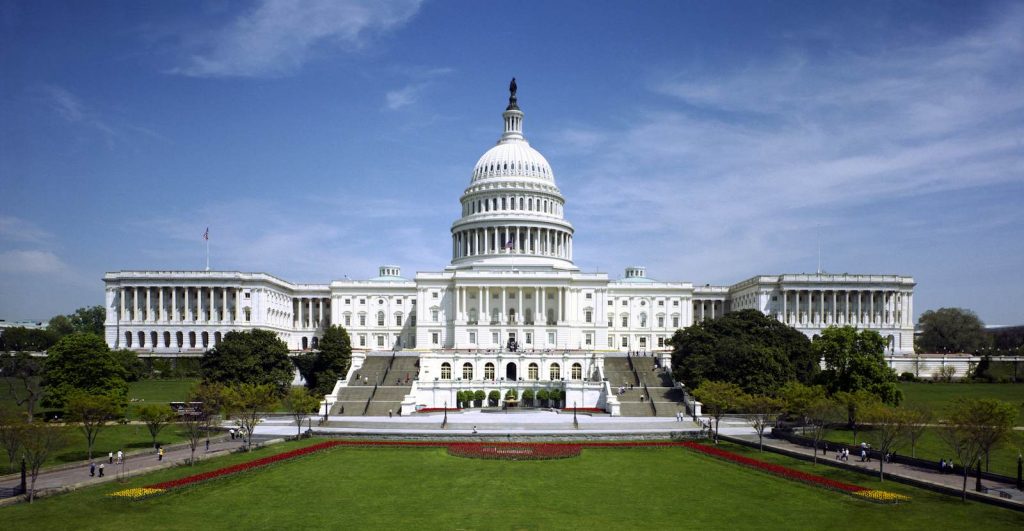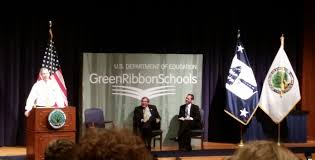Government Grants
Business Grants
Home Owner Programs
Federal Programs
About Us
Cooperative Ecosystem Studies Unit, Californian CESU
The U. S. Geological Surveys National Biological Information Infrastructure (NBII) Program is offering a Cooperative Agreement opportunity to a CESU partner within the Cooperative Ecosystems Studies Unit that has the ability to provide science delivery and technology transfer about biological and natural
resources data and information in the area of vertebrate zoology at local, regional, and national scales.
The results will be available via various USGS websites, Universities, Museums, State Agencies, and the USGS NBII website at http://www.nbii.gov.
All results of this research will be available to federal and non-federal natural resource research and management communities, their partners, other stakeholders, and the general public.
The NBII is a collaborative effort among federal, state, local, and foreign agencies, international and non-governmental organizations, academic institutions, museums, and private sector groups to provide an intelligent gateway to biological data and information worldwide.
NBII is used by land managers, scientists, legislators, educators, and the general public for purposes that include land-use decisions, scientific research, policymaking, and general information needs of its users.
The NBII provides the nation with a mechanism for accessing the vast amount of existing biological and natural resources data, information products, and analytical tools that support and enhance science-based decision-making.
Using enterprise portal technology, the NBII provides a framework for making these data and information accessible.
NBII is also the USA node for the Global Bioinformatics Information Facility, which aggregates and serves specimen-backed data from around the world.
The NBII is specifically looking for collaborative opportunities with a CESU partner to increase the availability, accuracy and usefulness of verifiable distribution records for vertebrate species nationally.
Several efforts have been funded in the past by the National Science Foundation (NSF) including ManIS, HerpNet, FishNet, and ORNIS with great success in providing broad access to specimen data in support of federal agency land management, decision making, conservation initiatives, and educational activities.
Based on these networks, a community goal has been established to create a national and international network, VertNet, which develops IT tools, governance, digitations methods, and other processes in support of natural history museums committed to sharing specimen data, implement and further develop appropriate standards and protocols, and promote sharing of these data through several web portals.
The USGS will be a full participant with the University partner.
USGS and CESU participants will work closely together to (i) review the needs of participating collections, (ii) identify potential new partners, (iii) brief relevant agencies and foundations, on opportunities to support and benefit from these distributed data-portals, (iii) identify and pursue models for sustainability of the data networks on which NBII and the broader community depend, and (iv) ensure that the information reaches researchers as well as professionals in other federal and state agencies, educators, and ultimately the public.
The results will be available via various USGS websites, Universities, Museums, State Agencies, and the USGS NBII website at http://www.nbii.gov.
All results of this research will be available to federal and non-federal natural resource research and management communities, their partners, other stakeholders, and the general public.
The NBII is a collaborative effort among federal, state, local, and foreign agencies, international and non-governmental organizations, academic institutions, museums, and private sector groups to provide an intelligent gateway to biological data and information worldwide.
NBII is used by land managers, scientists, legislators, educators, and the general public for purposes that include land-use decisions, scientific research, policymaking, and general information needs of its users.
The NBII provides the nation with a mechanism for accessing the vast amount of existing biological and natural resources data, information products, and analytical tools that support and enhance science-based decision-making.
Using enterprise portal technology, the NBII provides a framework for making these data and information accessible.
NBII is also the USA node for the Global Bioinformatics Information Facility, which aggregates and serves specimen-backed data from around the world.
The NBII is specifically looking for collaborative opportunities with a CESU partner to increase the availability, accuracy and usefulness of verifiable distribution records for vertebrate species nationally.
Several efforts have been funded in the past by the National Science Foundation (NSF) including ManIS, HerpNet, FishNet, and ORNIS with great success in providing broad access to specimen data in support of federal agency land management, decision making, conservation initiatives, and educational activities.
Based on these networks, a community goal has been established to create a national and international network, VertNet, which develops IT tools, governance, digitations methods, and other processes in support of natural history museums committed to sharing specimen data, implement and further develop appropriate standards and protocols, and promote sharing of these data through several web portals.
The USGS will be a full participant with the University partner.
USGS and CESU participants will work closely together to (i) review the needs of participating collections, (ii) identify potential new partners, (iii) brief relevant agencies and foundations, on opportunities to support and benefit from these distributed data-portals, (iii) identify and pursue models for sustainability of the data networks on which NBII and the broader community depend, and (iv) ensure that the information reaches researchers as well as professionals in other federal and state agencies, educators, and ultimately the public.
Relevant Nonprofit Program Categories
Obtain Full Opportunity Text:
Not Available
Additional Information of Eligibility:
This financial assistance opportunity is being issued under a Cooperative Ecosystems Studies Unit (CESU) Program.
CESUs are partnerships that provide research, technical assistance, and education.
Eligible recipients must be a participating partner of the Californian Cooperative Ecosystem Studies Unit (CESU) Program.
Full Opportunity Web Address:
Contact:
FAITH GRAVESContract SpecialistPhone 703-648-7356
Agency Email Description:
Contract Specialist
Agency Email:
fgraves@usgs.gov
Date Posted:
2010-06-22
Application Due Date:
2010-07-28
Archive Date:
2010-08-27
Social Entrepreneurship
Spotlight
The U.S. Government on Cultivating Impact Investing And Social Enterprise

According to a Private Capital, Public Good report recently released at the White House from a group of A-list impact investing and social enterprise specialists, the U.S. government can do a lot to spur the growth among the impact investing and social enterprise sectors.

